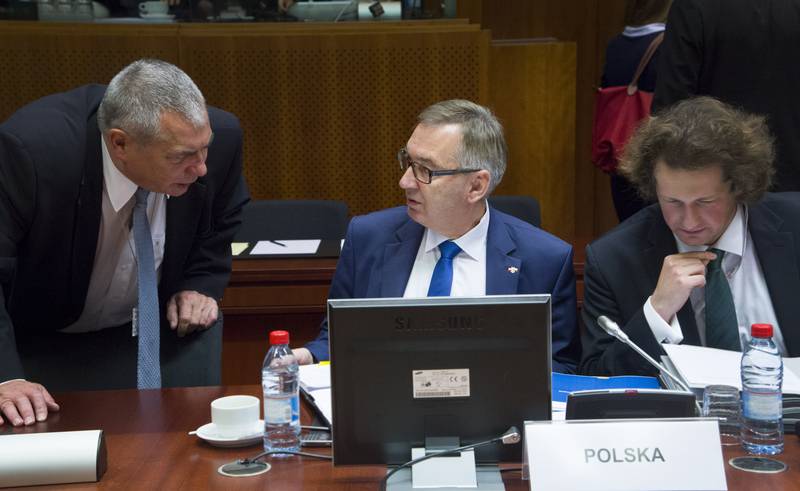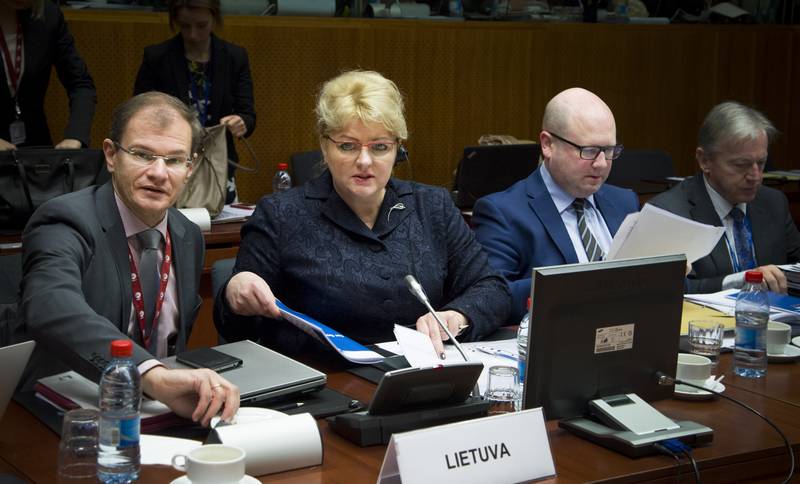Hungary Tripped the EU again with Poland's Help on LGBTI Rights
Adelina Marini, April 21, 2016
 Continuing the saga from the beginning of December, when Hungary and Poland blocked a deal, being prepared for over five years to settle asset disputes of married couples and registered partnerships, including gay couples, in the beginning of March the Social Affairs Council of the EU (EPSCO) failed to agree on a text of conclusions on the rights of LGBTI people, again because of Hungary’s objections. Poland also placed a reservation, not substantiated but rather supporting Hungary. This once more unleashed a civilisation shock in many of the ministers, who spoke at the public discussion on the draft conclusions on March 7th, in Brussels. The Dutch presidency attempted at pushing through a two documents package – one on gender equality and the other on the rights of LGBTI people.
Continuing the saga from the beginning of December, when Hungary and Poland blocked a deal, being prepared for over five years to settle asset disputes of married couples and registered partnerships, including gay couples, in the beginning of March the Social Affairs Council of the EU (EPSCO) failed to agree on a text of conclusions on the rights of LGBTI people, again because of Hungary’s objections. Poland also placed a reservation, not substantiated but rather supporting Hungary. This once more unleashed a civilisation shock in many of the ministers, who spoke at the public discussion on the draft conclusions on March 7th, in Brussels. The Dutch presidency attempted at pushing through a two documents package – one on gender equality and the other on the rights of LGBTI people.
At this meeting, for the first time the European Commission's strategic document was discussed, which is the first step towards the development of a new strategy for gender equality, after the previous one (2010-2015) expired. Generally, member states supported the EC’s five priorities in this sphere: equal economic independence for women and men; equal pay for work of equal value; equality in decision-making; dignity, integrity, and ending gender-based violence; and promoting gender equality beyond the EU. Although there is no ready strategy yet, the ministers supported these priorities with no discussion.
The bone of contention proved to be the list of actions of the Commission of December of last year for the advance of LGBTI equality. The purpose of the document is to fight discrimination against these people by the year 2019. Justice Commissioner Vĕra Jourová (Czech Republic, ALDE) quoted at the presentation of the document that, according to an Eurobarometer poll from last year, 60% of European citizens believe that discrimination based on sexual orientation and gender identity is widespread. At the same time, 71% of responders support equal rights for gays, lesbians, bisexual, transgender, and intersex people. “No one will lose out if LGBTI people get the rights that everyone else can already enjoy”, said Ms Jourová back then.
The EC priorities for fighting discrimination by the year 2019 are providing legal protection to these people and their families; monitoring and enforcement of existing legislation; advertising diversity and non-discrimination; supporting those, who fight for LGBTI equality; collecting more statistical data on discrimination and violence cases; transferring these actions outside the EU as well. Actually, on this topic the EU for the first time talks in parallel about measures within the Union and about measures in the countries aspiring for membership or falling under the Union’s neighbourhood policy.
Following extensive discussions, the presidency proposed a draft of conclusions, but Lithuania, Latvia, Hungary, and Poland placed reservations. This is why, the presidency presented on March 7th a new, softer text. The differences between the two texts are substantial. There are significant changes made in point 8 of the original text. Important parts of the text have been deleted and others have been softened. There was mention in the text of a study by the EU’s Fundamental Rights Agency (FRA), according to which, the LGBT people in the EU are facing obstacles to exercising their fundamental rights, with the express mention of the spheres in which they are discriminated against: employment, education and access to goods and services. It is exactly these things that fell out of the text presented on March 7th. Besides, the initial version said: “The survey also shows that many LGBT persons are subjected to violence and harassment, frequently in public places”. In the new version the word “shows” is substituted by “suggests”.
Other important changes happened in point 10, where the initial conclusions urged the EC to enforce the measures from its action-list for the advancement of LGBTI equality, while in the new text the Commission is just invited. The following text is added to the new version: “...while fully respecting the Member States' national identities and constitutional traditions as well as the competence of the Member States in the field of family law...”.
The Dutch Minister of Social Affairs, Lodewijk Asscher, opened the public discussion on March 7th in the Council of Ministers with the words that equality is a fundamental value for the EU. “This is an area where we, as Europe, lead the world”. He stressed that he continues to demand that the two documents remain bundled and not to go the way of approving just the one that concerns gender equality, as were the urges on the other similar dossier on the asset relations of trans-border couples. Regarding LGBTI people’s equality, Minister Asscher urged member states to work with the EC in the battle against discrimination and for the raising of awareness about the problem, for “our ideals of equality and tolerance also need to have public opinion on their side”. Lithuania and Latvia announced that they were lifting their reservations, but Hungary kept its own.
The arguments of Budapest are that LGBTI rights “is a complex, politically highly sensitive issue for many member states, it touches upon questions belonging to the exclusive competence of the member states, like family law, and it has an effect on the member states' constitutional rules, principles and values”, said the Hungarian representative. He asked that the Council only approved that set of conclusions, which concern gender equality. “We believe that the Council should only adopt conclusions in matters having the full support of the 28 member states”, he said. The current text of the conclusions, which distinctly mentions the constitutional specifics of member states does not satisfy Hungary in the least.

The text is fully acceptable to Poland, but it decided to back Hungary anyway. Warsaw thinks it will be best if all member states back the text. Thus the reservation, levied by the state, is purely in principle, it is not on the current text, clarified the Polish representative. A number of statements of disappointment and shock followed. “Unfortunately, I note that today, in 2016, there is a lot of resistance as regards the equality of LGBTI people to deal with this at an EU level”, said the Minister of Social Affairs of Belgium. “Today could have been an historic day and we still are going to have to continue fighting against the discrimination of LGBTI persons in Europe”, she added, expressing regret that the new text is considerably weaker than the previous one. “And I'd like to say that I'm extremely sorry at the very conservative opinions of some of my colleagues here”, she concluded.
The Czech Republic also expressed regret about the dismissal of the far stronger language of the previous text. Regrets were also expressed by Sweden, Slovenia, Finland, Denmark, Italy, Austria, Germany, Spain, Ireland, Greece, and Portugal. Great Britain, which also has a conservative government, expressed huge regrets. “The UK is very strongly committed in advancing both gender and LGBTI equality. We think that the conclusions would have sent an important message about how the Council views the importance of tackling the equality issues”. Bulgaria did not participate in the discussion with a statement; neither did Croatia, which is also overtaken by a pronounced conservative wave. The government hopes that an agreement on the subject will be reached at the social ministers’ meeting in June.
Translated by Stanimir Stoev
 Federica Mogherini | © Council of the EU
Federica Mogherini | © Council of the EU | © Council of the EU
| © Council of the EU Luis De Guindos | © Council of the EU
Luis De Guindos | © Council of the EU